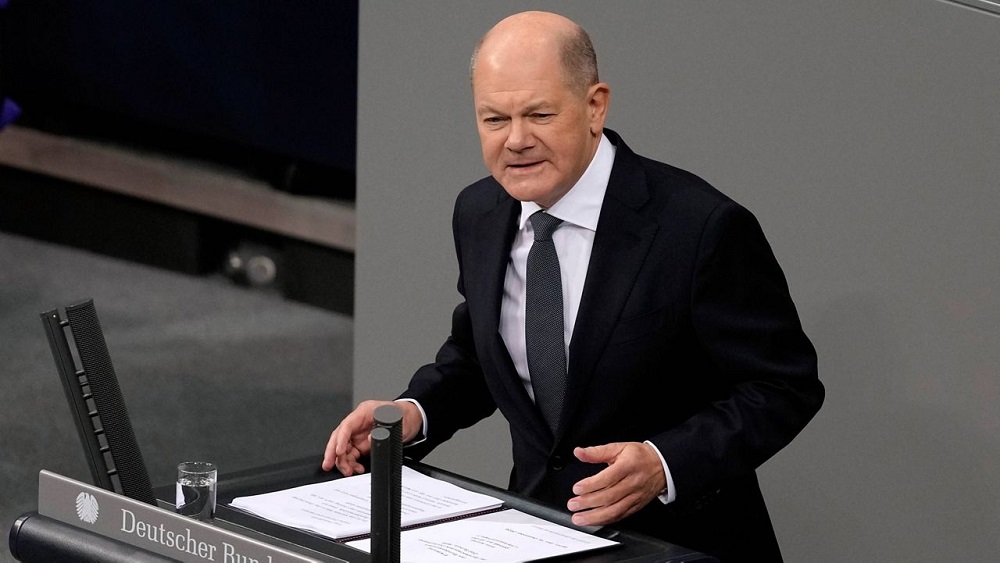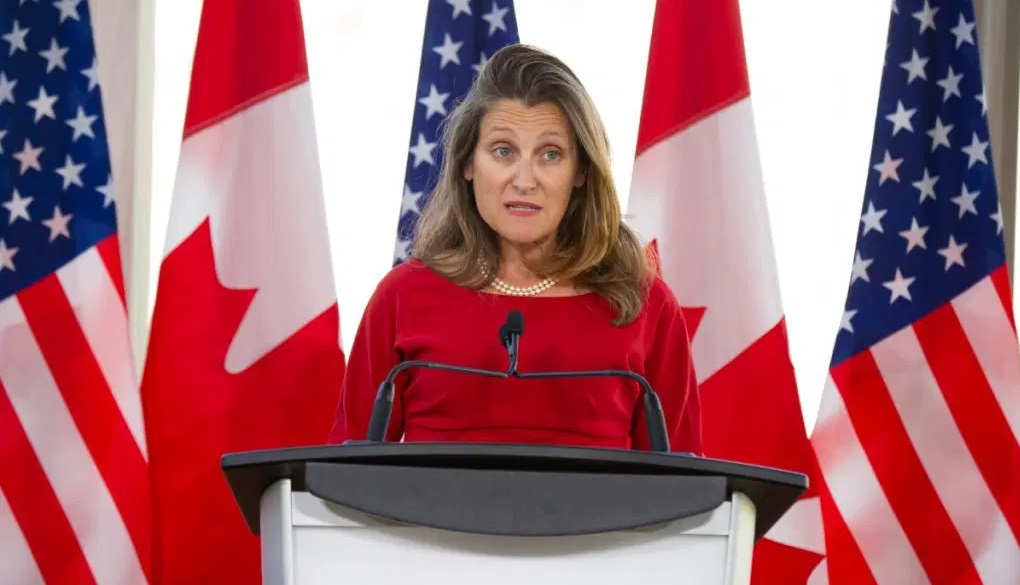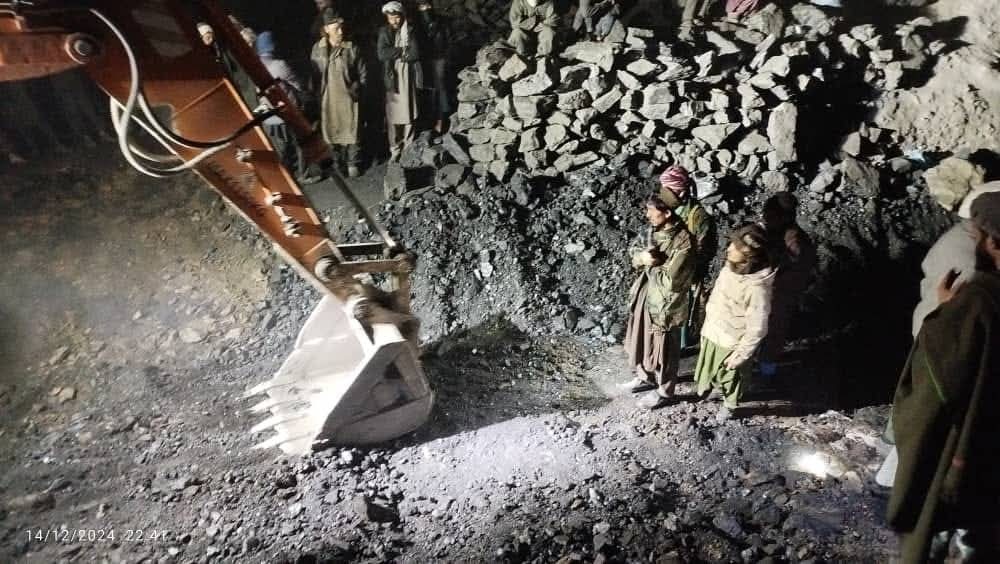Foreign
Suspense mounts as Macron prepares to name new France PM

French President Emmanuel Macron was expected Thursday to name a new prime minister a week after MPs toppled the government, with politicians across the spectrum holding their breath while he conducts a day visit to Poland.
Macron had promised to name a replacement government chief within 48 hours after meeting party leaders at his Elysee Palace office Tuesday, participants said.
But he remains confronted with the complex political equation that emerged from July’s snap parliamentary poll: how to secure a government against no-confidence votes in a lower house split three ways between a leftist alliance, centrists and conservatives, and the far-right National Rally (RN).
Greens leader Marine Tondelier urged Macron on Thursday to “get out of his comfort zone” as he casts around for a name.
“The French public want a bit of enthusiasm, momentum, fresh wind, something new,” she told France 2 television.
Former prime minister Michel Barnier, whose government had support only from Macron’s centrist camp and his own conservative political family, was felled last week in a confidence vote over his cost-cutting budget.
His caretaker administration on Wednesday reviewed a bill designed to keep the lights of government on without a formal financial plan for 2025, allowing tax collection and borrowing to continue.
Lawmakers are expected to widely support the draft law when it comes before parliament on Monday.
Sources close to the government said the announcement was expected when the president returns Thursday evening from his trip to Poland. But Macron has in the past often taken longer than expected with such decisions.
– ‘Look to the future’ –
At issue in the search for a new prime minister are both policies and personalities.
Mainstream parties invited by Macron on Tuesday, ranging from the conservative Republicans to Socialists, Greens and Communists on the left, disagree deeply.
One totemic issue is whether to maintain Macron’s widely loathed 2023 pensions reform, seen by centrists and the right as necessary to balance the budget but blasted by the left as unjust.
On the personality front, Macron’s rumoured top pick, veteran centrist Francois Bayrou, raises hackles on both the left — leery of continuing the president’s policies to date — and on the right, where he is personally disliked by influential former president Nicolas Sarkozy.
“It’s jammed” as Macron looks for a deal with Socialists and Greens to avoid a new no-confidence vote, a person close to him told AFP, adding that a pact could be “a vain hope”.
Another senior figure in Macron’s camp said informal talks with the two parties on Wednesday had not been conclusive.
Beyond Bayrou, prime ministerial contenders include former Socialist interior minister and prime minister Bernard Cazeneuve, serving Defence Minister and Macron loyalist Sebastien Lecornu, and former foreign minister Jean-Yves Le Drian.
But a name could still emerge from outside the pack, as happened with Barnier in September.
Those in circulation “are names that have been around for years and haven’t seduced the French. It’s the past. I want us to look to the future,” Greens boss Tondelier said.
– Far right ‘not unhappy’ –
While the suspense over Macron’s choice endures, the parties shut out from Tuesday’s talks are trying to paint those trying to find a way forward as weak.
The Socialists’ openness to cooperation has been denounced by their nominal ally Jean-Luc Melenchon, figurehead of the hard-left France Unbowed (LFI) — the other heavyweight force in the broad New Popular Front (NFP) left alliance.
“No coalition deals! No deal not to vote no confidence! Return to reason and come home!” Melenchon urged on Tuesday.
Hardline attitudes are not necessarily vote-winners, with just over two-thirds of respondents to an Elabe poll published Wednesday saying they want politicians to reach a deal not to overthrow a new government.
But confidence in the elite is limited, with around the same number saying they did not believe the political class could reach agreement.
In a separate poll from Ifop, RN figurehead Marine Le Pen was credited with 35 percent support in the first round of a future presidential election — well ahead of any likely opponent.
She has said she is “not unhappy” her far-right party has been left out of the horse-trading around government formation, appearing for now to benefit from the chaos rather than suffer blame for bringing last week’s no-confidence vote over the line.
AFP
Foreign
Germany’s Scholz loses a confidence vote, setting up an early election in February

Chancellor Olaf Scholz lost a confidence vote in the German parliament on Monday, putting the European Union’s most populous member and biggest economy on course to hold an early election in February.
Scholz won the support of 207 lawmakers in the 733-seat lower house, or Bundestag, while 394 voted against him and 116 abstained. That left him far short of the majority of 367 needed to win.
Scholz leads a minority government after his unpopular and notoriously rancorous three-party coalition collapsed on Nov. 6 when he fired his finance minister in a dispute over how to revitalize Germany’s stagnant economy. Leaders of several major parties then agreed that a parliamentary election should be held on Feb. 23, seven months earlier than originally planned.
The confidence vote was needed because post-World War II Germany’s constitution doesn’t allow the Bundestag to dissolve itself. Now President Frank-Walter Steinmeier has to decide whether to dissolve parliament and call an election.
Steinmeier has 21 days to make that decision — and, because of the planned timing of the election, is expected to do so after Christmas. Once parliament is dissolved, the election must be held within 60 days.
In practice, the campaign is already well underway, and Monday’s three-hour debate reflected that.
What did the contenders say?
Scholz, a center-left Social Democrat, told lawmakers that the election will determine whether “we, as a strong country, dare to invest strongly in our future; do we have confidence in ourselves and our country, or do we put our future on the line? Do we risk our cohesion and our prosperity by delaying long-overdue investments?”
Scholz’s pitch to voters includes pledges to “modernize” Germany’s strict self-imposed rules on running up debt, to increase the national minimum wage and to reduce value-added tax on food.
Center-right challenger Friedrich Merz responded that “you’re leaving the country in one of its biggest economic crises in postwar history.”
“You’re standing here and saying, business as usual, let’s run up debt at the expense of the younger generation, let’s spend money and … the word ‘competitiveness’ of the German economy didn’t come up once in the speech you gave today,” Merz said.
The chancellor said Germany is Ukraine’s biggest military supplier in Europe and he wants to keep that up, but underlined his insistence that he won’t supply long-range Taurus cruise missiles, over concerns of escalating the war with Russia, or send German troops into the conflict. “We will do nothing that jeopardizes our own security,” he said.
Merz, who has been open to sending the long-range missiles, said that “we don’t need any lectures on war and peace” from Scholz’s party. He said, however, that the political rivals in Berlin are united in an “absolute will to do everything so that this war in Ukraine ends as quickly as possible.”
What are their chances?
Polls show Scholz’s party trailing well behind Merz’s main opposition Union bloc, which is in the lead. Vice Chancellor Robert Habeck of the environmentalist Greens, the remaining partner in Scholz’s government, is also bidding for the top job — though his party is further back.
The far-right Alternative for Germany, which is polling strongly, has nominated Alice Weidel as its candidate for chancellor but has no chance of taking the job because other parties refuse to work with it.
Germany’s electoral system traditionally produces coalitions, and polls show no party anywhere near an absolute majority on its own. The election is expected to be followed by weeks of negotiations to form a new government.
Confidence votes are rare in Germany, a country of 83 million people that prizes stability. This was only the sixth time in its postwar history that a chancellor had called one.
The last was in 2005, when then-Chancellor Gerhard Schröder engineered an early election that was narrowly won by center-right challenger Angela Merkel.
Foreign
Canada deputy PM quits amid tariff rift with Trudeau

Canada Deputy Prime Minister Chrystia Freeland quit Monday in a surprise move after disagreeing with Justin Trudeau over US President-elect Donald Trump’s tariff threats.
Freeland also stepped down as finance minister, and her resignation marked the first open dissent against Prime Minister Trudeau from within his cabinet and may threaten his hold on power.
Liberal Party leader Trudeau lags 20 points in polls behind his main rival, Conservative Pierre Poilievre, who has tried three times since September to topple the government and force a snap election.
“Our country today faces a grave challenge,” Freeland said in her resignation letter, pointing to Trump’s planned 25 percent tariffs on Canadian imports.
“For the past number of weeks, you and I have found ourselves at odds about the best path forward for Canada.”
First elected to parliament in 2013, the former journalist joined Trudeau’s cabinet two years later when the Liberals swept to power, holding key posts including trade and foreign minister, and leading free trade negotiations with the EU and the United States.
Most recently, she had been tasked with helping lead Canada’s response to moves by the incoming Trump administration.
Canada’s main trading partner is the United States, with 75 percent of its exports each year going to its southern neighbor.
In her resignation letter, Freeland said Trudeau wanted to shuffle her to another job, to which she replied: “I have concluded that the only honest and viable path is for me to resign from the cabinet.”
As finance minister, she explained the need to take Trump’s tariffs threats “extremely seriously.”
Warning that it could lead to a “tariff war” with the United States, she said Ottawa must keep its “fiscal powder dry.”
“That means eschewing costly political gimmicks, which we can ill afford,” she said in an apparent rebuke of a recent sales tax holiday that critics said was costly and aimed at bolstering the ruling Liberals’ sagging political fortunes.
Trouble for Canada Trudeau
Dalhousie University professor Lori Turnbull called Freeland’s exit “a total disaster.”
“It really shows that there is a crisis of confidence in Trudeau,” she said. “And makes it much harder for Trudeau to continue as prime minister.”
Until now, the cabinet has rallied around Trudeau as he faced pockets of dissent from backbench MPs, noted Genevieve Tellier, a professor at the University of Ottawa.
Freeland’s rejection of his economic policies poses “a big problem,” she said, and shows his team is not as united behind him as some thought.
Freeland’s departure comes on the same day she was scheduled to provide an update on the nation’s finances, amid reports the government would blow past Freeland’s deficit projections in the spring.
“This government is in shambles,” reacted Poilievre’s deputy leader, Andrew Scheer, to Freeland’s news, saying “Even she has lost confidence in Trudeau.”
Housing Minister Sean Fraser, who also announced Monday he was quitting politics, described Freeland as “professional and supportive.”
One of her closest friends and allies in cabinet, Anita Anand, told reporters: “This news has hit me really hard.”
Freeland said she would run in the next election, expected in 2025.
Foreign
32 trapped as coal mine collapses

At least 32 miners are trapped underground after a coal mine collapsed in northern Afghanistan, provincial officials confirmed on Sunday.
Rescuers have been working tirelessly since the collapse, which occurred late Saturday in the Dara-i-Sof Payin district of Samangan province.
Samangan Governor’s spokesperson, Esmat Muradi, told newsmen that it remains unclear how many of the trapped miners are still alive.
“Excavators and rescuers have been working since early morning but unfortunately, the opening to the mine has not yet been cleared,” Muradi said.
Afghanistan’s mining industry operates with little oversight, making such deadly accidents alarmingly common.
Workers often extract coal, marble, minerals, gold, and gemstones in rudimentary pits without adequate safety equipment.
In February 2022, ten miners died in a similar coal mine collapse in Baghlan province. Other recent tragedies include a gas explosion that killed seven workers in Samangan in June 2020 and the collapse of a gold mine in Badakhshan in 2019, which left at least 30 dead.
AFP
-

 Metro23 hours ago
Metro23 hours agoPolice barred From Arbitrary Arrests, Detention Of Youths, Collection, Checking Of Phones
-

 News20 hours ago
News20 hours agoN141bn Agreements: Reps to Probe Non-Delivery of Tractors, Harvesters
-

 News22 hours ago
News22 hours agoCJN: Lack of conferencing cause of conflicting Court verdicts
-

 Entertainment22 hours ago
Entertainment22 hours agoSinger Portable cries like a baby during prayer session
-

 News23 hours ago
News23 hours agoNoise pollution:Govt Seals The Lord’s Chosen, Celestial Churches, Hotel, Restaurants
-

 News23 hours ago
News23 hours agoDrama At Nigerian Code Of Conduct Tribunal As Two Chairman Lay Claim To Office
-

 News21 hours ago
News21 hours agoFormer Ughelli/Udu Federal HoR Aspirant, Akpodiete Enrolled Over 120 Beneficiaries Into Health Insurance Scheme
-

 News17 hours ago
News17 hours agoSAD! Youth Corps member slumps, dies in Orientation camp



















